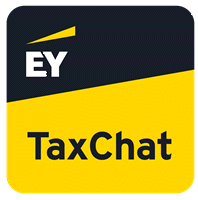You may think the only time there would be taxes on an IRA or another type of retirement account would be when you take withdrawals or distributions. It is possible, however, that certain income received in retirement accounts, which are tax-exempt entities, could be taxed before that.
What is UBTI?
Unrelated business taxable income is income earned by a tax-exempt entity, such as an IRA, that is not related to the exempt purpose of the tax-exempt entity. The exempt purpose of an IRA is to provide for the retirement of the IRA holder.
Let's say, for example, you own an oil drilling partnership in your IRA, and the drilling equipment owned by the partnership is leased to another company to use. This rental income would be considered UBTI.
UBTI tends to be generated by the following types of investments:
- Limited partnerships (LPs)—businesses owned by more than one person, with limited liability to the owners for business debt
- Master limited partnerships (MLPs)—a type of LP that is publicly traded and often found in the energy sector
When an IRA is invested in an MLP or LP, it becomes a partner in the partnership. This is an ownership interest in the partnership. Becoming an owner (in part or in full) of a business (such as an MLP or LP) is not considered within the exempt purpose of the IRA. MLPs and LPs may generate taxable income in a retirement account if the partnership borrows money, also known as using leverage.
Tax considerations
An IRA is an exempt entity separate from the beneficial owner of the IRA and can be subject to taxation on its own. UBTI is subject to taxation in all varieties of retirement accounts, such as IRAs, retirement plans like Keoghs, and health savings accounts (HSA). When total positive UBTI across all applicable investments held in a retirement account equals $1,000 or more, then Form 990-T must be filed.
Preparation and tax filing
- As custodian, Fidelity will complete and file Form 990-T on behalf of your retirement account.
- We will pay any resulting taxes, penalties, and interest from available cash in your account.
- Any amounts remitted from the account to pay this tax will not be reported as a taxable distribution on IRS Form 1099-R.
- Review any net operating losses (NOLs), MLPs, or LPs with your tax advisor. This information may reduce your tax liability. Any additional information may be submitted to Fidelity using the Supporting information for Form 990-T filing (PDF) form.
Mail completed forms to:
- Fidelity Investments
PO Box 770001
Cincinnati, OH 45277-0060
Failure to file Form 990-T and pay any required unrelated business income tax (UBIT) by the IRS filing deadline can result in penalties.
We will notify you next year if your retirement account is required to pay UBTI for the applicable tax year.
Taxation related to UBTI can be complex. Depending on your financial situation and goals, having retirement accounts invested in UBTI-generating entities may or may not be to your advantage. Consult a tax advisor on this issue and others related to UBTI.



